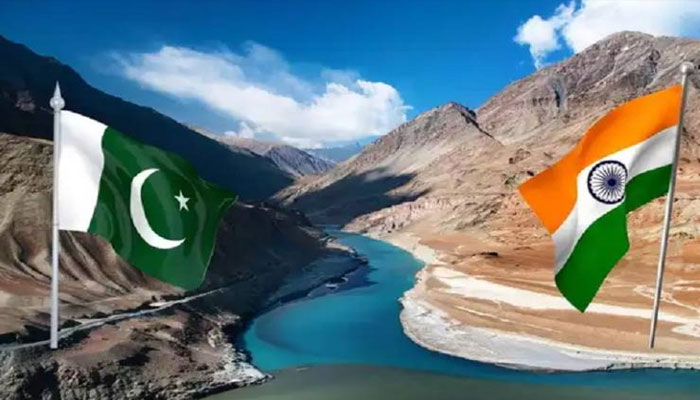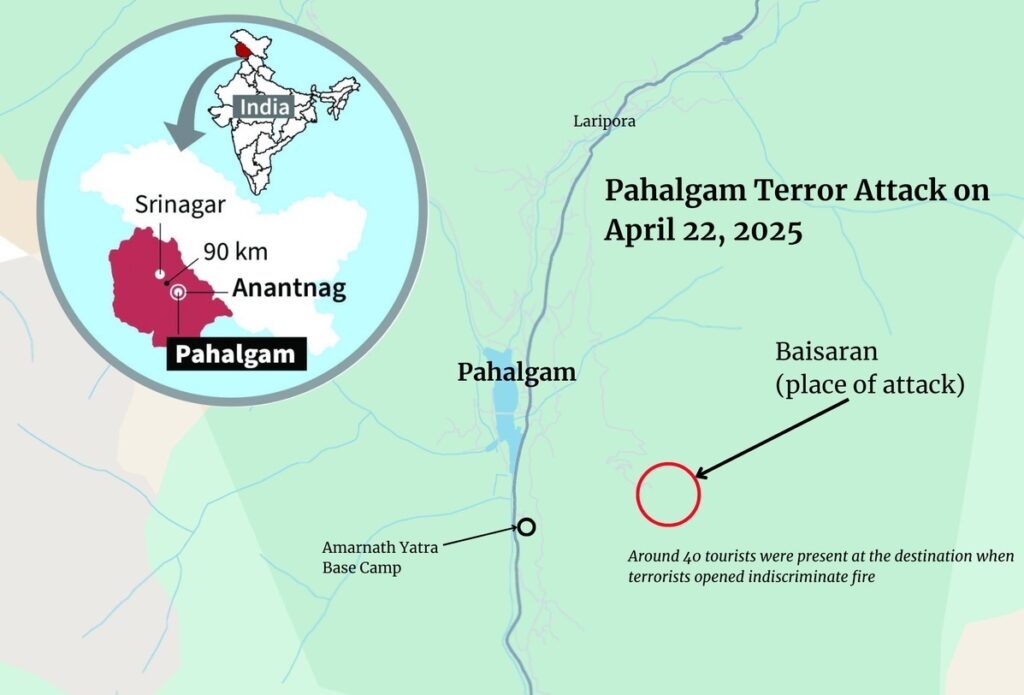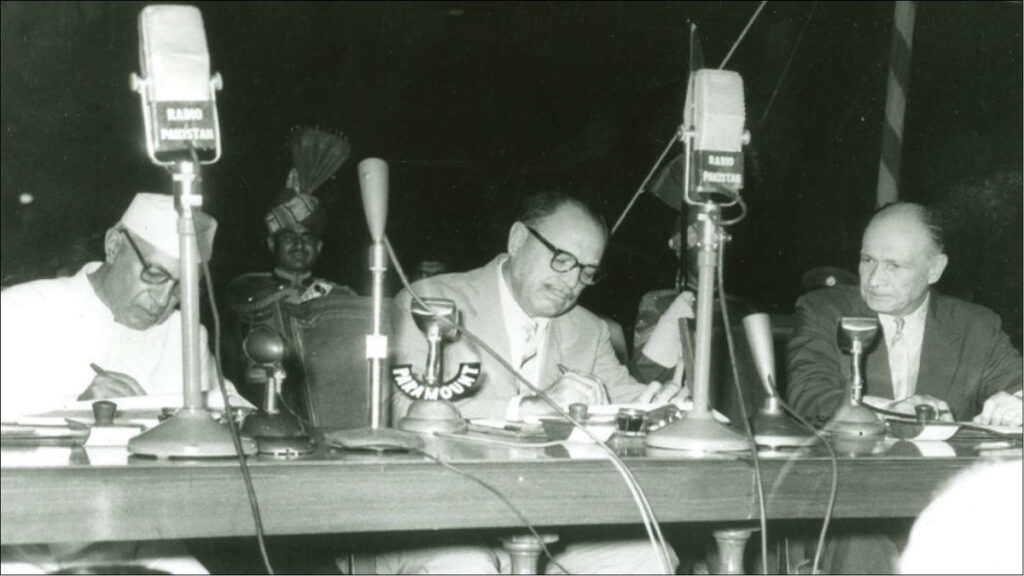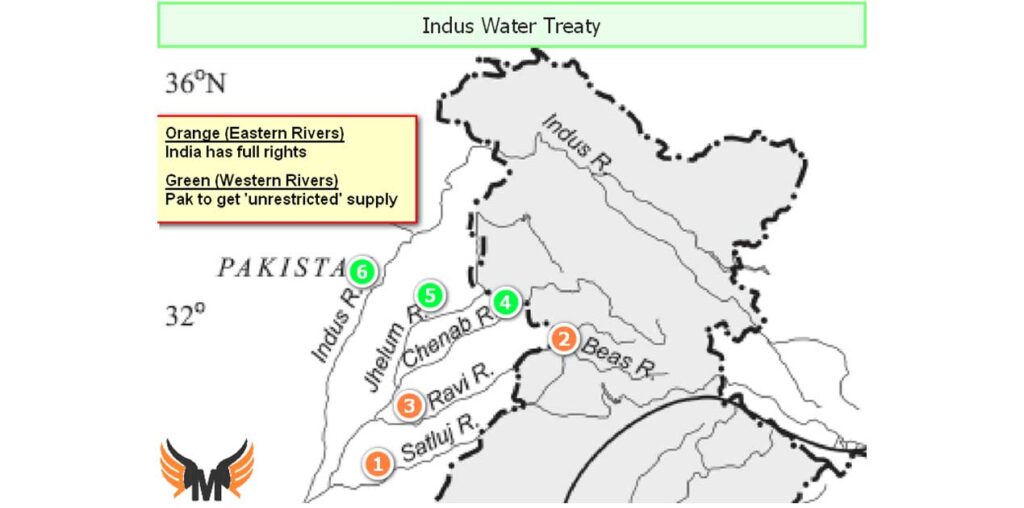

In a turn of events that lays bare the enduring proclivity of Pakistan’s military-intelligence apparatus for perfidious adventurism, the subcontinent has once again been plunged into the vortex of tragedy and retribution. On 22 April, the scenic tranquillity of Pahalgam in Jammu and Kashmir was shattered by a heinous act of terror—an attack carried out by assailants of Pakistani provenance, leaving in its wake a trail of innocent blood, most of it that of unsuspecting tourists.

This egregious violation of human sanctity provoked an unequivocal and resolute response from New Delhi. In a swift Cabinet Sub-Committee review chaired by Prime Minister Narendra Modi on 23 April, the Indian government charted a bold course of action, announced by India’s Foreign Secretary Vikram Misri. Among the arsenal of retaliatory instruments under consideration, it was the suspension of India’s obligations under the Indus Waters Treaty (IWT) that emerged as the most telling—and symbolic—rebuke to Islamabad.
This abrupt departure from what has long been a pillar of regional diplomacy signals a watershed moment—both literally and metaphorically—in South Asia’s geopolitical tapestry. For more than six decades, the IWT has served as an improbable exemplar of bilateral cooperation, a rare artefact of amity amidst a chronically discordant relationship. That India should now suspend this treaty reflects a fundamental recalibration of its strategic posture, particularly vis-à-vis Pakistan’s sustained dalliance with proxy terrorism. But before one delves into the ramifications of this audacious move, one must first examine the edifice of the Indus Waters Treaty—its origins, its operational architecture, and the significance it has come to assume in both geopolitical and existential terms.
A Riverine Pact Forged in Discord
Conceived in the crucible of Cold War anxieties and brokered under the watchful eyes of the World Bank, the IWT was inked in 1960 after an arduous nine-year negotiation. At the heart of the agreement lay the equitable distribution of the six rivers of the Indus basin—the Indus, Jhelum, and Chenab in the west; and the Ravi, Beas, and Sutlej in the east.

In what can only be described as an act of magnanimous restraint, India ceded exclusive control over the three Western rivers—comprising nearly 70% of the total water volume—to Pakistan, while retaining dominion over the three Eastern ones. This asymmetry, while glaring, was accepted in the spirit of regional stability and the hope that water, the most elemental of life’s resources, might also irrigate the parched soil of subcontinental peace. But alas, that noble aspiration has withered. Successive regimes in Islamabad have weaponised non-state actors, cultivating a cottage industry of jihadist terror that has repeatedly spilled across the Line of Control and stained Indian soil with blood. And yet, even amidst war and vitriol, India abided by the treaty, honouring its commitments with a stoic discipline that belied the provocations it endured. This forbearance, however, is not inexhaustible.
The Cost of Generosity
To understand the magnitude of India’s concession, consider the numbers. The Eastern rivers—Ravi, Beas, and Sutlej—over which India has unfettered rights, collectively yield about 41 billion cubic metres of water annually. The Western rivers, gifted to Pakistan, deliver nearly 99 billion cubic metres—more than double the volume under Indian control. This hydrological largesse has become the very artery of Pakistan’s survival. In a nation where agriculture constitutes over 25% of GDP and sustains approximately 70% of the populace, water is not a mere resource—it is an existential imperative. The Indus basin fuels its farms, powers its turbines, and feeds its people. To perturb this flow is to imperil the nation’s economic equilibrium and societal cohesion.
And yet, Pakistan’s security establishment has long treated this precious accommodation as a given—immutable, untouchable, and immune to the vagaries of geopolitical conduct. This misplaced confidence has emboldened it to pursue a duplicitous doctrine—of nurturing militant proxies even as it benefited from the benevolence of Indian water diplomacy.
The Straw That Broke the Canal
By suspending the IWT, India is sending a message steeped in symbolism but not lacking in substance. This is not merely an outburst of indignation—it is a calibrated policy shift. The message is unequivocal: India shall no longer subsidise its adversary’s antagonism with strategic concessions. If Pakistan insists on fomenting unrest through insidious means, it must also be prepared to forfeit the privileges accorded to it under treaties predicated on good faith.
One may argue, with some justification, that India’s current water infrastructure lacks the immediate capacity to divert or fully harness the Western rivers. The requisite reservoirs, barrages, and canal systems for such a hydrological overhaul are still under development. But in geopolitics, perception often precedes practice. The very act of invoking the treaty’s suspension has rattled the strategic calculus in Islamabad and laid bare the fragility of its assumptions.
For decades, Pakistan has operated on the belief that India’s strategic restraint—especially in the hydrological domain—was sacrosanct. It misread India’s civility as weakness. That illusion has now been spectacularly shattered.

A Faustian Bargain That Failed
What, then, has Pakistan gained from its Faustian pact with terror? Has its strategy of bleeding India through a thousand cuts yielded dividends? On the contrary, the costs have been profound and self-defeating.
Far from “liberating” Kashmir or coercing India into negotiations on its own terms, Pakistan finds itself internationally isolated, diplomatically suspect, and economically anaemic. Worse still, the terror groups it once mentored have now metastasised, turning their guns inward and threatening the cohesion of the Pakistani state itself. The logic of proxy warfare—premised on the deniability of violence and the expendability of cannon fodder—has unravelled. In its place stands a polity riddled with extremism, plagued by economic fragility, and mired in geopolitical ignominy. The international community, once indulgent of Pakistan’s strategic anxieties, now views its double game with growing exasperation.
The Geopolitical Ripple Effect
India’s suspension of the IWT, while unilateral in action, has multilateral implications. It signals to the world that New Delhi is prepared to reframe the contours of South Asian diplomacy. Water—long considered sacrosanct—can no longer be divorced
To paraphrase the ancient wisdom of the East, one cannot bathe twice in the same river—because the water has moved on, and so has time. Pakistan, too, must now move on—from the shackles of militancy, from the dogmas of military overreach, and from the delusion that duplicity can be a permanent policy.
If it fails to do so, history may not be as forgiving as the Indus once was.